 "Talk, talk, talk, talk, all you do to me is talk, talk." Okay, not exactly immortal words from the English New Wave band Talk Talk, but they have a point.
"Talk, talk, talk, talk, all you do to me is talk, talk." Okay, not exactly immortal words from the English New Wave band Talk Talk, but they have a point. In publishing these days, there is a push for more dialogue, less description and introspection. One well-known author I know says if you're character can think it, s/he can say it. Well, maybe, but why would I want them to? Maybe I'm simply contrary, but I don't enjoy page after page of dialogue.
 I tend to think of loads of dialogue kind of like George did in the Seinfeld episode with the "Yada Yada Yada" girl George dated. George figured out she was leaving out some significant details when she used the phrase "yada yada yada". But when he probed and she told him all the details she had left out, it was WAY more than he wanted to know. Sometimes I feel that way with dialogue-heavy books. TMI (too much information)!
I tend to think of loads of dialogue kind of like George did in the Seinfeld episode with the "Yada Yada Yada" girl George dated. George figured out she was leaving out some significant details when she used the phrase "yada yada yada". But when he probed and she told him all the details she had left out, it was WAY more than he wanted to know. Sometimes I feel that way with dialogue-heavy books. TMI (too much information)! As a reader, I like breaks. I like characters to reflect on what they think, how they feel and - shocker! - what they might do next. On the other hand, I don't enjoy endless blocks of exposition with no dialogue, either. I prefer a balance of the two. But I think it's more than simple preference. It seems to be a function of an author's voice and what works for them and the stories they tell.
Some authors, like MaryJanice Davidson, have a voice that comes out in dialogue. I would know her voice (or maybe Betsy the Vampire Queen's from her "Undead" series) anywhere. Her strength is dialogue and she uses plenty of it. Then again, the Undead books are first person narratives, so even when Betsy is thinking about something, the voice is there.

Both of these authors are New York Times bestsellers, despite having very different styles of writing. I'm fairly certain Harlan Coben's editor doesn't tell him to lose all the narrative and pack in more dialogue. Which leads me to question things I've learned in recent years about loading the story with dialogue for dialogue's sake. Should I worry about making my books more dialogue driven when my strength lies in my narrative voice (as I've been told)? The part that loves MaryJanice says "yes". But the big part, the Harlan Coben fan girl, says, "Heck no, girlfriend!" Maybe I should leave well enough alone and let my narrative speak for itself.
What do you think? Is more dialogue in a book better or does it depend on the author? Are you tired of all the yada, yada, yada in books or do you crave more? Please dish!

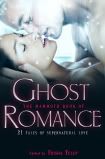
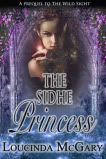
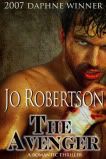
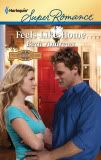
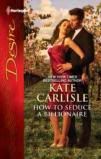

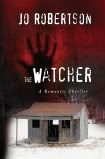


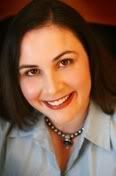











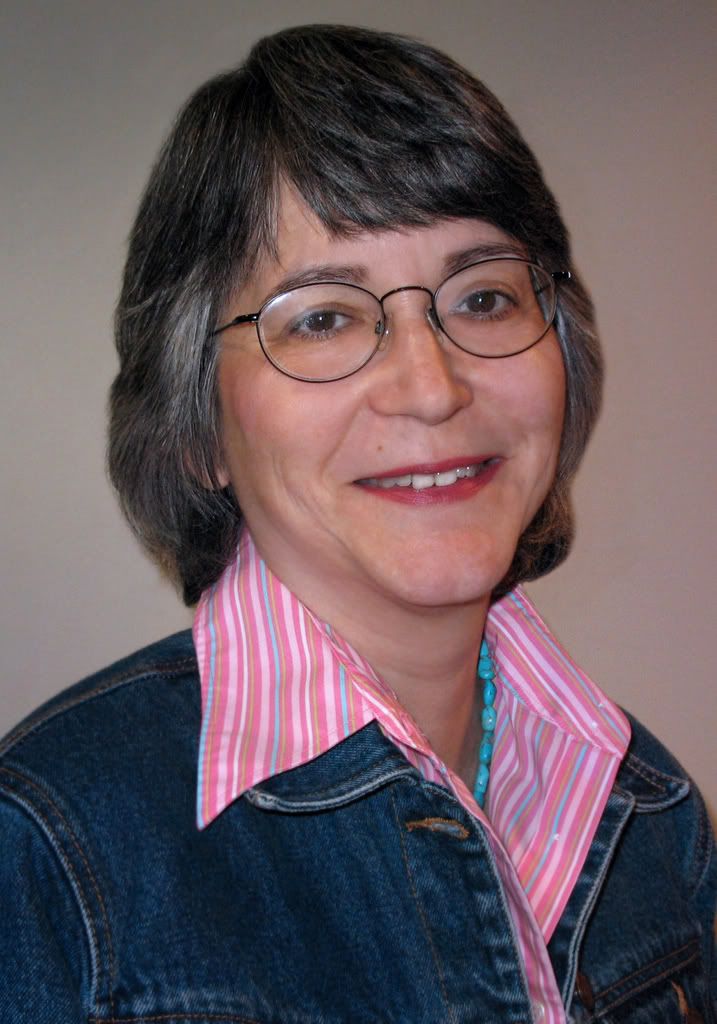




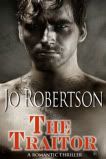




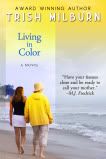
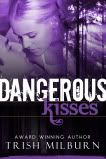









































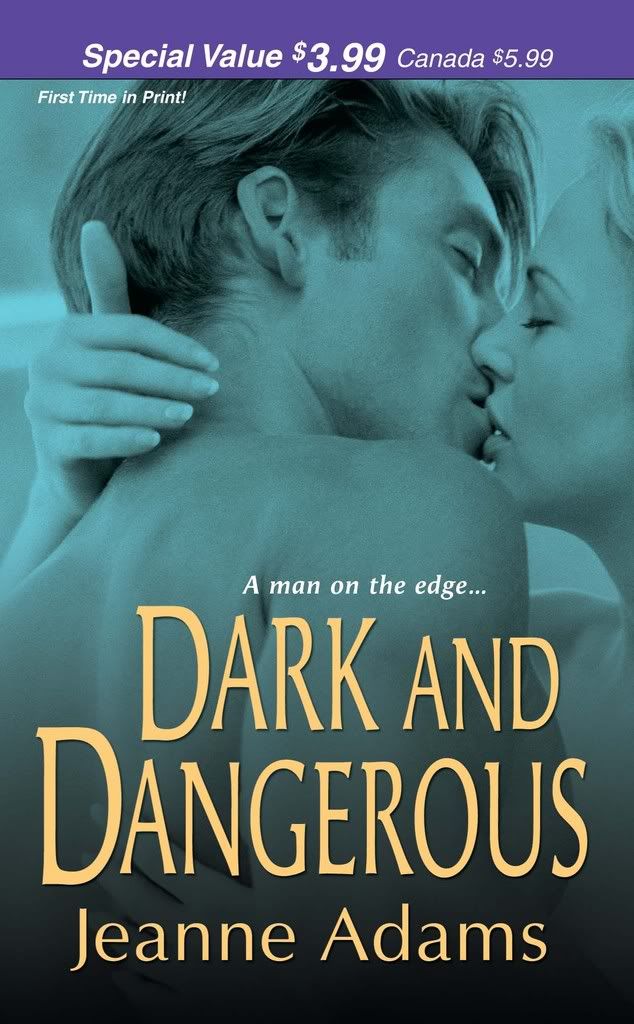



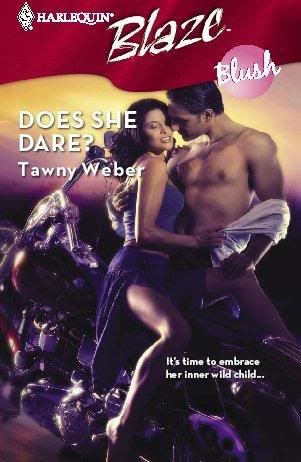





99 comments:
Oh me, oh my! Is the Rooster coming to DC?
Ya only got there first cause you were sliding down Bandita Hill!!!
Grumble....first a debut book now the GR!!!
Dang, I was just finishing those shots. I was so close! LOL!
I think it depends on the author. Sometimes I'd like a little more dialogue, and sometimes I wish it would just *stop* ;) I'm picky, aren't I?
p.s. - how frustrating, the blog WOULD NOT LET ME COMMENT. :P And wow - I'm seeing the comments appear like popcorn as a I try.
He is! Well, well, well. He was such a party animal today, as was I, that I think we'll keep it low key.
Read a book. Harlan perhaps! :>
Caren, I'm a balance girl, but if I had to lean, I'd lean to narrative. I LOVE description and the kind of "turn of phrase" that works in narrative but comes out sounding priggish in dialogue.
One of the things I love about JK Rowling, Ludlum, Norton, and so many others are the rich, delicious, fabulous detail that puts you IN the scene. You can taste Harry Potter's pumpkin juice, feel Bourne's confusion, that sort of thing.
How's that for an on-the-fence answer?
Heh-heh-heh. Joanie, those shield rides are a blast. Please thank your wonderful Roman boyz for bringing their gear. :>
Terrio, you're a wild woman. Really.
Joanie, I left you a limerick on yesterday's blog, but Terrio, the cheeky girl finished it! Ha! Way to go, Terrio!
Whoot, Jeanne, and on your launch day too! Well, at least it's still Friday night here on the west coast. Have fun with the GR. Give the bird some culture, k?
Great post, Caren. I'm a dialogue girl, all the way, which is funny because I cut my reading teeth on 19th Century classics, which as you know, are PURE NARRATIVE!!!!
Still, when I'm writing, the dialogue always comes first. I'll go pages and pages of dialogue until my CP Aunty Cindy pulls me back from the precipice and yells at me: I WANNA KNOW WHAT THEY'RE DOING!!!!
For me, it's white space all the way, baby.
K, clothes are folded and I've taken off my party shoes. Jeanne, you have no idea how hard it was to keep that last line innocent. LOL!
Caren - I'm just like Jo. Dialogue all the way. It just comes easier to me. It probably stems from the fact I LOVE to talk. So it would make sense that I want to hear my characters talk.
However, I love being sucked into a narrative. I'm reading Sugar Daddy by Lisa Kleypas and it's like savoring a gourmet meal. This book is a masters class all on its own.
Balance is the right word for it. Some of the newer stuff that is dialogue heavy reads like a lighter story. They have less weight and though you can read them pretty quick, there isn't much that you can really sink your teeth into.
Hey, jeanne won the door prize at her own launch party - the GR!!
What a great post, Caren. And a really good question. When I am writing I "hear" the dialogue first (big surprise, right? Someone who talks as much as I do would definitely be dialogue prone!) However, I can go on and on in description and introspection too. The dialogue comes to me and then I pull back and see the scene.
A relatively new Southern writer - Ace Atkins - does a fabulous job of setting the scene. His book DIRTY SOUTH had descriptions of the people, places and FOOD in Louisiana, especially New Orleans, that put you right there. His book White Shadow takes place in Miami - Little Havana primarily - and OMG, every page makes you hungry! Then again he has these great snips of dialogue.
"He's the only guy I know who can piss and walk at the same time."
"How does he keep from pissing on his feet?'
"He doesn't."
Low brow I know, but you get the picture.
Congrats on the GR, Jeanne -
I'll try to get this in before the thunder storms rolling through kick me off the computer.
I'm a dialogue girl. I've analyzed the amount of dialogue of maybe 60 - 70 books, as in actually counting the words of dialogue and comparing it to the total words in the chapter (anal - I know). The big NYT folks always hit the high percentages. Lesser known authors are on the low side.
Having said that - dialogue for dialogue sake just doesn't work. It's got to be meaningful dialogue with consequences. And it's got to be interspersed with reflection, movement and description. At least that's my opinion.
Great question, though -
And before someone asks - by high percentages, I mean in the 40 - 45% area. Low would be 8 - 15%
For me, I think it depends on the author and the book. Sometimes more dialogue will work for a story and sometimes it calls for a longer narrative. A nice balance between the two is always good.
Woohoo! Jeanne, just another reason to celebrate now! Congrats on the GR, too! ;)
Caren, I have to say, I do love some good dialogue--like Donna said, not just dialogue for the sake of nattering on, but funny dialogue will hook me every time. Maybe because I love reading it and imagining if only I were so quick on my own feet ;)
Congrats on the GR, Jeanne.
I think it depends on the author, too, but I do usually prefer a lot of dialogue. I do admit that it can become tedious, but it takes a lot for me to feel that way.
Woo Hoo, congrats Jeanne, you and the GR can recuperate today.
Caren, I like a balance of both. In what I have read that seems to be okay, I can't recall a book that had an overabundance of narrative or dialogue. Perhaps the type of book would be a key to that as well.
Congrats all round Jeanne fantastic release party and the GR well done
Caren great post I don't mind how an author writes their story if it makes me feel as if I am part of the adventure then I love it. I do love reading about the scenery and houses etc because I do read a lot of historical and because I didn't live in that era description is important to me. I guess if the author is happy about the way they write this shows in the story and plots and brings the reader into it then I am sold and wll keep reading that author.
Have Fun
Helen
Caren, what an interesting topic. I think for me it depends on the subgenre and the style of the author. I always think dialogue does a wonderful job of showing character and emotion and I like to be shown a lot rather than told it through introspection--but of course narrative prose can still show rather than tell, too.
I like it when there's a subtext and loads of tension in the dialogue. I hate those circular conversations that pass for banter in some books and bickering drives me nuts.
But if you're writing first person, it's really the story through the color of that person's glasses, and the strong voice has to come through the narrative. In that case, dialogue becomes less crucial to my enjoyment. But then I find the best first person voices sound as if they're speaking to me out loud anyway. Sugar Daddy, which Terrio mentioned, is a perfect example of that conversational tone.
As a writer, my forte has always been dialogue. In fact, I sometimes think I'd be better off writing plays;)
Hey, duchesse! Congrats on the GR! I hope he doesn't have a hangover today.
Caren, I am in total agreement with you on this topic. There should be a balance between dialog and narrative that carries the book. But, if your forte is one or the other, by all means, you should focus on that. This is not to say that you shouldn't keep working to improve the areas that you consider weakest in your writing because you definitely should. But I don't believe in loading in dialog for dialog's sake. It's like forcing yourself to eat beets when you prefer carrots. Always go for what you like best, whether it be dialog or carrots, it makes the whole experience much more enjoyable. And when you enjoy something, especially in your writing, others will, too, because it shows.
Btw, this is a great topic for discussion! As ever, Caren, I might add. I always enjoy your threads - and everyone else's here. You Bandits are all very insightful and it makes my day to read what's on your minds!
The problem with mostly dialogue is that it results in some stilted conversations to give you the back story on some of the characters.
Hi to all,
Jeanne, I bet that GR has found some leftover Champers and is having a celebration today too!!
I love lots of narrative in a book,
the descriptions and details, also real history of the period.
Clever dialogue appropriate to the character's "part" is essential for us (the reader) to see the "real" person in the Char.
I recently read 'No country for old men' and 'The Road' - Cormack Macarthy... and the manner of the writing is quite different...there is hardly any puntuation, talking marks etc, however the story flows along wonderfully...my two-cents worth here!!
On another matter, Brenda Novac's auction is about to end 31st May...very shortly...um I hesitate to say...cos I hope no-one outbids me for a very lovely pair of earrings...but it is a great fundraiser for JD.
Cheers Carol
I think it depends on both the author and the subgenre. In historicals it seems you can get away with more description and internal thought.
I just started a historical, though and I'm six pages into nothing but the author telling me about the heroine as a little girl growing up. No dialogue, just author intrusion. I'm seriously bored at this point. There is nothing in these six pages so important that it couldn't have come in dialogue or internal thought later into the story.
Hey, Jeanne, I thought you were passed out after the launch party. Now the Golden Rooster will have to watch you sleep all day! Well, he may need a "down day" after being with Jane so long. *g*
Now, Joan, don't be bitter. Just because Demetrius wouldn't let you use his shield to slide down Bandita Hill, that's no reason to resent Jeanne's abundant good fortune. Btw, I think she got Damien schnockered and stole his shield.
Terrio, I hate to say it, but your mother was right. Shots and surveillance don't mix! Better luck next time. *g*
Limecello, isn't it interesting how different "voices" are? I'm with you. Sometimes, I wish the narrative would END already (especially if we're on the House Beautiful tour *g*), but sometimes the characters just go on and on about nothing. It makes me crazy both ways!
Hm. I'm back to the balance thing again...
Limecello, sorry about the comment frustration. I think it was Jeanne, Joan and Terrio shoving for the GR! I hope Jeanne isn't one of those people who is bearlike when hung over. *eg*
Jeanne, I think I'm sitting on the fence with you. I tend, in general, to love narrative. But it has to be strong narrative and that seems to depend on the author's voice.
Think of Jason Bourne. He's not really a man of words, you know? We get caught up in the action/reaction with Jason. (Btw, I lurve Jason! Actually, I love all the Bourne movies. They made me an even bigger Matt Damon fan!)
But I digress. *eg* I wonder if my love of narrative was formed by early reading of authors like Tolkein and Auel whose books were 98% narrative. I loved those tomes!
Jo, I find it fascinating that you are a dialogue girl! Why do you think that is? As much as I enjoy well-written dialogue, I don't crave that in books.
I wonder if part of it stems from my no-TV existence. I adore movies, but rarely watch TV. (Except American Idol, which hardly even counts!) When I watch most movies, the dialogue is critical and drives everything.
Books, for me, are slower. I read much more slowly than most people I know. As we've discussed before, I like to set the whole scene (as if it's a movie) and watch the characters as they move through the story.
Maybe, Jo, having all those children and very little free time pushed you toward really fast-paced stories you could get through in a short amount of time? Just a theory!
Terrio, that's a great point! I have thought in the past that reading one of Julia Quinn's Bridgerton books was like eating a bon bon. Sweet, tasty and gone in a flash. Some of them I barely recall, though others stick with me. But she often has pages of dialogue, especially in big family scenes.
Do you ever feel like dialogue-heavy books are a sweet melting on your tongue? And yes, wonderful narrative like Lisa Kleypas' is exactly like a luscious gourmet meal. Great description!
Doglady, I've heard raves about Ace Atkins but haven't read him yet. And the TBR pile grows! *g*
I love that you and Terrio and Jo hear the dialogue first. For me, I "see" a scene and the characters in it. I know what they are feeling and basically what's happening. I have no idea what they're going to say, though. It's troublesome! Often I will have a scene completely nailed, then spend many, many hours figuring out exactly the right line of dialogue to pull the whole thing together. It's agonizing!
I envy people for whom dialogue comes so naturally.
Donna, I love that you've analyzed all this. I mean, if anyone were to do that, it would be you. *g*
I agree that the dialogue has to be meaningful, though. I think HUGE bestsellers like Rowling and Coben and Ludlum who use tons of narrative also have to have meaningful narrative that drives the story forward or at least paints a great picture.
I agree with the concept of balance. Dialouge with narrative, internal thought, external events.
And even more than "does the story call for it" is "what does the character want to do".
Two examples. I just re-read Nora's "Key of Light". I LOVE Flynn Hennessey. His fun wit comes through in everything he does and says (especially when referencing Moe his sloppy dog). And when he has to get down to protecting his woman..challenging the big evil guy....whoa...watch out.
Flynn is a chatty fellow. On the other side is JR Ward's Zhadist....his dialouge comes less in words then it does in action and attitude.
I was stuck in a scene in THE PATRICIAN'S FORTUNE. I struggled and struggled to get them "out of the shop" (My CP's kept pulling their hair out saying "get them out", LOL). I finally decided "let them talk" and what do you know? Out they went (to be attacked by an assassin) but still they were out LOL
And Jeanne, Demetrius says if he finds any chook poo on his shield....
Jennifer Y., we're back to our old friend Balance. *g* I really think it's mostly to do with the author's voice.
I think Donna said she had looked at early and later books by the same author and thought they would trend, these days, toward more dialogue. But I think she found their percentage of dialogue to narrative remained fairly consistent. I suppose the "voice" didn't change over the years!
Fedora, I love witty banter! Reading it done well is a delight (the bon bon again!).
Now, here is me being annoying and braggy, BUT I tend to be witty in real life. I can fling zingers with the best of them. Friends envy this dubious talent. HOWEVER, when I sit down and try to write that, it's much harder.
I think because writing is a slo-o-ow process. When I'm talking, I can think on my feet and let the first thing that crosses my mind fall off my tongue. (Which I do with startling and egregious regularity!) Writing lacks that spontaneity for me. It's harder for me to be witty when I have to think about it.
I really am of the "talk first, think later" school. It's a risky way to live! If I could use it in my writing, though, that would come in handy...
Jane, why do you think the dialogue appeals to you? Do you love the fast pace? You live in the Big Apple, I think, so I imagine life is fairly fast-paced. Maybe dialogue-driven books keep pace with your lifestyle?
Dianna, come sit on the Fence Of Balance with me, Jeanne and Terrio. *g* I am growing more convinced with every post that it is a function of the writer's voice and the type of story they tell.
I mean, think about Charles Frazier's "Cold Mountain". (One my dh's favorite books - not one on my short list.) That thing hardly had ANY dialogue at all! And yet, could he have told that particular story through dialogue? Of course not! It was an introspective book about an introspective character. Having a bunch of nattering would have felt completely artificial and destroyed the atmosphere.
Balance. Story type. Voice. I'm still on the Fence!
Helen, you make a good point. The author, no matter their style, has to take us along for the ride, don't they?
I do enjoy a bit of the "House Beautiful" tour in historicals. I love the architecture, the gardens, the clothes and food. I am less inclined to want tons of that in contemporaries, though, if I already have a decent picture of the setting. It's fine for unfamiliar places or settings or situations.
A problem I have found is that a few books I've read ASSUME everyone knows the town where it's set. Like, say, Baltimore. Now, I have a vague image of Baltimore, but since I don't watch TV, I haven't seen tons of Baltimore (I think a series was set there - some cop show?)
I read a couple of books by an author writing about Baltimore who simply assumed EVERYONE knows what the town is like. Uh, no. I wanted more of a "flavor" of the city. What does it look and feel and smell like?
Someone who does a GREAT job with this is Janet Evanovich in her Stephanie Plum books. I've never been to Trenton, NJ and will probably never go there. BUT, she gives us such a character's-eye view of Trenton and the Burg that you know exactly what it's like. I envy that!
Christine, how interesting that you are a dialogue girl writing historicals! I have to say, "Scandal's Daughter" had fabulous dialogue. Of course, the narrative was great as well.
So, for you - to whom dialogue comes easy - is the narrative more of a challenge or is it simply a necessary evil?
Margay, YOU are insightful as always. We love having you here and I'm glad we provide some intellectual stimulation. *g* Sorry, no shield sledding or frosty beverages today. We had to give the cabana boys the day off. :-/
I am concluding once again that it's most important for a writer to concentrate (though not exclusively) on their strengths. I have written my last FOUR books as first person narratives. Now, agents love to tell you how hard it is to sell first-person narratives. AND YET, authors like Coben, Davidson and Evanovich use this voice almost exclusively. Certainly, their biggest sellers are all first-person narratives. Why? It works for them and their voices!
I have been trying hard to write my new book in third person. I was even trying to change my last book to third person. I think I'm going to stop. Whatever charm my stories have seem to be in the "voice" of my narrative. Maybe I should stick with that part. Who needs a second POV anyway? :-(
I like dialogue. Although I like short stories, I tend to look at the dearth of 'white space' as daunting sometimes.
I tend to throw my characters into a room and listen to what they're saying. Then, I have to go back and trim it because not everything they say helps tell the story.
BUT -- I also like to get into the heads of the characters, and emotionally charged introspective narrative will draw me in.
I don't like AYKB dialogue. And I worry when narrative starts throwing in back story information. Must trace back to my high school days, because I always wonder, "Will this be on the test?" So, if there's a narrative portion where the character says, "Sue, the bookstore owner" ... I'm ok with it. But when they say, "Sue, the bookstore owner who nearly lost her shop last year when her brother-in-law had cancer..." that pulls me out. First, I go see if I'm reading book 3 or 4 instead of book 1. If it's indeed book 1 (because I NEVER start with book 3!), then I expect a sub-plot about Sue and her brother in law. By now, I've lost the thread.
I agree Harlan Coben is a narrative pro. Michael Connelly handles it expertly as well, because he gets all the "tell" about the police stuff in while making it sound perfectly normal for Harry Bosch to be thinking about that stuff.
Balance, Balance, Balance. Keep the flow. Keep it natural. Keep your voice.
Dang, this writing stuff can be hard sometimes, can't it?
For me it depends on the author and book or maby just the mood I'm in wanting to finish it sooner.
Enjoy your day, I'll check back later. :)
A problem I have found is that a few books I've read ASSUME everyone knows the town where it's set.
Caren, I so get this. I recently purchased a book that is set in Chicago. The opening was so redolent with very, very specific Chicagoisms....from setting to characters to so many Chicago specific traits/customs that it was grating. It started from the very beginning and despite my hopes continued into the book.
It did not make me fall in love with a different setting. It confused me. I couldn't finish reading it.
Caren, you soooo don't want to know what Baltimore smells like. Take it from me.
Caren, I LOVE this topic.
I totally agree that authorial voice has a lot to do with how the book should be structured; playing to your strengths is always a good game plan.
What I also consider is what kind of story the author is trying to tell. Harlan Coben, my personal fav, is telling an interior journey story, the emotional trials of the first person narrator.
Balance? I'm not sure that's how I think of it. Using up your word count on what you do best is more how I'd define it. If a writer has a reader fully enveloped in the ride, my feeling is that the average reader isn't going to notice if it's heavy in narrative, description, or dialog--she's too busy living in that world to analyze anything.
Claudia, I second that. After all, most readers do so for the sheer pleasure of it and don't usually analyze the style of the writing itself but, rather, the content of the story. I think this whole dialog vs narrative, first person vs third argument is a writer/publisher/agent argument, since we are all "trained" by our own experiences to pick apart the works of others and see what works and what doesn't. I think, in the end, the important thing to remember is our job is to deliver the books of our heart to our prospective readers in whatever form they manifest and let the readers draw their own conclusions. After all, isn't that our ultimate audience? I know I don't write for the sheer purpose of having just an agent or publisher read it. First, I write for myself. If I like the way it comes out, then I send it out there to be read by others.
I love this topic!
Maureen, isn't that stilted dialogue the worst? I was accused once of "cheating" because I had a character mention something in the opening of a book that the other character would already know.
True, the other character would know it. But isn't it also true that you sometimes bring up things with a friend that you both already know? Like, "So, how's your brother's job hunt going? It's been about six months, hasn't it?"
I mean, sure you both know it, but there is more for the friends to discuss. I don't know. I think working in back story is an art form. Some writers handle it much better than others! (and much better than I!)
Carol, I had heard that about Cormack McCarthy's books. Everyone has said that once they got used it (after a few pages), it didn't bother them. I'll have to check him out!
THANK YOU for the reminder about Brenda Novak's auction! As someone with Type 1 diabetes (juvenile diabetes is an outdated term, though many know it and use it), I think Brenda's work is fabulous! Of course, even though they can't prevent Type 1 (unlike Type 2, which is VERY preventable for most people), treatment is so much better now than it was when I was diagnosed in 1982.
They have a lovely term for me now that I've had diabetes for over 20 years. An "old diabetic". Isn't that charming? *g*
Christie, don't you find it odd that the author's editor let her get away with that? The editors seem to be trying hard to steer authors toward more action and dialogue up front, even if the book is heavy on narrative later.
The exception is, for instance, Harlan Coben's "The Woods", which I'm reading now. The narrator, Paul, is basically talking to the reader at the opening of the book. Giving us his story, where he's at now. Talking about when his father died. It totally sucks you in, because it's like hearing someone's confession. Of course, Coben is a master and I study his novels like text books. *g*
Joan, that's so true! A character's disposition may lead him to be more talkative and, therefore, lend more dialogue to the story. Hm.
Of course, we invent those characters (sort of, except when they invent themselves). So maybe writers create characters and stories that support their own strengths. Silent Romans, Joan? Maybe their strength is supporting your talent for narrative!
Terry, I'm not sure the AYKB (As you know, Bob) dialogue bothers me as much as it bothers others. Normally, I think I would prefer narrative exposition for this kind of info, though.
What I've found most entertaining in books in recent years are the thoughts inserted between a speaking character's sentences. Also thoughts of the POV character inserted between ANOTHER character's sentences. For whatever reason, that REALLY works for me.
Terry, since dialogue comes so naturally for you, do you ever fall prey to the "talking heads" and forget to describe where they are? I fall victim to that sometimes when writing lengthy passages of dialogue!
Dina, I love a woman who can go with the flow! I usually don't realize what sort of book I'm reading (heavy narrative vs. heavy dialogue) unless something brings it to my attention. I tend to get lost in the stories. And isn't that what all us of readers want? *g*
Joan, was it a barrage of "insider" references? Like the deli everyone should know or the crooked politician? Those kinds of things make me feel like an outsider with my nose pressed against the glass.
I think it takes a lot of talent to write something that appeals both to people living in the area where a story is set and to those who may never have been there before. Man, aren't you glad you write historicals from WAY back?
Christie, you cracked me up! I actually had a fleeting thought about someone telling me Baltimore can get rather pungent when I wrote that. Is it the waterfront or the manufacturing plants or what? *g*
Claudia, you are exactly right (naturally)! When the writer is doing what s/he does best, the storytelling method should be seamless to us. It's just a vehicle to deliver the magic. *sigh*
I think it's hard to trust you're using the right vehicle when you're unpublished.
Margay, that's so true. I think being a writer kind of spoils reading for lots of people. It put a damper on my reading, I know. Now, when a book sort of isn't working, I want to pick it apart and figure out WHY.
Before I wrote, I would just put the book down and maybe finish it later. Or not. I certainly didn't worry about WHY it didn't work for me!
Readers know when they find something they like. They want more of the same. I think that's why certain authors (like Nora) can successfully write in more than one subgenre. They take the voice with them. Others seem to change their voice when they switch over and they lose readers. Of course, they may gain new ones. We all like what's familiar to us. A good ride is a good ride and we go back for more!
Wow -- lots of responses, and I was only gone 2 hours.
To answer Caren: Often, I write the 'talking heads' as a first draft. Then I go back and add tags, beats, and yes, POV character's reactions to what the other character said.
I think it works: readers have told me reading my books is like having me in the room talking to them, which I think means I've made things sound natural in both dialogue and narrative.
I suppose the "voice" didn't change over the years!
I can understand that. I can only speak as a reader, but now that you made me think about it *g*, some authors do seem to focus on one versus the other or try to have a mixture of the two.
And as I mentioned earlier, I honestly have no preference...LOL...at least none that I have noticed. I read a little of everything and have come across a little of everything during my reading years.
As long as the narrative or dialogue doesn't take me out of the story, then I am okay. I just want an entertaining and good read. I do want it to "fit" the story and be consistent throughout though (which I guess goes with an author's "voice" remaining consistent).
Sorry for rambling...I probably made no sense...I blame my cyber hangover from that party yesterday.
Ooh, Caren--I'm dying of envy here. You're a woman of SO many talents! Good at the mall, fast with the zingers, amazing with verse, fab hair... you know if you lived closer, I'd probably move in and you'd never see the end of me!
Anyway, since you're so fast on your feet (so to speak), have you ever tried dictating your books first and then having them transcribed (or going back and transcribing them)? I definitely understand how writing's a much slower process than speaking... and I'm not sure whether it's too different for that to work, but just throwing it out there :)
Hey Caren! Looks like another fine day in the Lair despite our Fence sitting. :> The GR and I have had a nice, relaxing lazy morning. He's currently leg-up, head-tucked and sleeping on the screened in porch, enjoying the breeze after the rain. I think he and I partied quite heartily enough yesterday to warrent a nap today! Ha!
You know, Pam, I think I read something about Ace Atkins in Southern Living. They reveiew books by Southern authors. I think they were quite favorable too.
You know, hearing Donna talk about the percentages, and everyone, including TICD talk about Voice in connection with this, it may be more about style. (Sorry Caren, that adds another word to the mix!)
The Style that suits you Caren, and in which you write so effectively is what I'd call first person sassy. You really give me the flavor of the character, while still giving me a sense of place, time, emotion, etc. (Lucky me, I've gotten to read some of Caren's work. I can't WAIT to see her stuff in print, its fab.)
There are those who can do first person and those who can't. I just can't. It would feel like writing with my toes if I wrote it in first, but YOU, my dear, do it so naturally, with such verve, that I'm right there with it.
THAT, I think is the Style Thing. Books sell in every style because the author has a brilliance in whatever Style they favor. Think about Clancy. If you hate description and narrative, you hate Clancy. But if you want to KNOW what that submarine looks like...Clancy's your guy. :>
Now, Jennifer, I gave you the cure last night so you wouldn't have that pesky cyber hangover. *g*
Really, though, I totally get what you're saying. I know that when I was strictly a reader, I paid NO attention to this kind of thing. But as a writer, it's something to obsess about. All writers are a bit neurotic and, much as we would love to deny it, we obsess about LOTS of things. This is just one of them. =:-0
I'm glad to know all sorts of stories work for you, though. I think it's a function of voice and story style. You give me hope for my first person narratives!
Fedora, darling, you're fab for the neurotic writer's ego! ;-) You can move to Raleigh and we'll spend loads of time shopping and combing bookstores and doing hair. Oh, and trading witty banter. What fun!
I haven't considered the dictating thing. That might actually work! Sometimes (but this only works when I'm at home), I'll have the conversation aloud and then type it furiously while I remember it. Unfortunately, I do lots of writing when I'm at work - shhh!, so I don't have that luxury. It would liven things up, though. *g*
Guess I'll have to give it a whirl!
Terry, I find it comforting that we go through the same process, only from opposite ends. I suddenly realize I have two pages of narrative and no dialogue and have to go back and insert conversation. I wish it were all easier, somehow!
Jeanne, I'm glad to hear you and the GR are taking it easy today. I have been out doing yard work, but now that it's 90 degrees outside, I've come in for a break!
I think you've hit on it. The whole narrative/dialogue thing really is about style. I'm sure that's why some authors just never click for a reader. If their style doesn't suit mine, I will never "bond" with them. Makes perfect sense!
Thank you for your kind words about my writing, sweetie. I hope some wonderful editor feels just the same way about it. I need to figure out who was originally Southern before she moved to NYC and stalk her. *g*
Speaking as a reader, I find that I
prefer equal amounts of dialogue and narrative. Although, sometimes a story just calls for more of one over the other. If that imbalance is not there in that particular story line, I'm left wondering
about what just happened! I'm not sure if that was clear enough, I guess my "Voice" is not working
well today!!
Oh, Congratulations, Duchesse!
Pat Cochran
Jeanne said: Lucky me, I've gotten to read some of Caren's work. I can't WAIT to see her stuff in print, its fab.
I have too and I LOVE Caren's style/voice/wit/dialouge. FABULOUS writing. I was completely immersed in "Kick Start". Some lucky editor's going to snatch you up soon......and I can say I knew you when.
Caren, yes, yes, it's tougher to trust yourself stylistically after several thousand rejections or even several dozen, but you have to believe in yourself first! Must, must, must.
Without your vision of your story to sustain you, to inform all your story decisions, to delight you as you come up with the perfect line of dialog while driving to the dreaded day job, you've got nothing. Just a pile of words that look pretty much like a thousand other manuscripts. It's your vision, your voice, that is the guts of the story. And it's guts that gets you published and keeps you published.
Find your voice! Stay true to your vision! Write the story as it comes to you, channeling it through your prism of perspective. And when someone says there's too much narrative, say, "Not for a Caren Crane book there's not. You obviously are not one of my million."
Period.
Pat, I think it's great that you are aware of what you like as a reader and why a book didn't work for you. Man, was I ever a clueless reader! Of course, I'm not terribly analytical about entertainment in any form. I'm more of a settle into the chair and watch whatever happens with a smile type. Gah!
I think being analytical like you or Donna is a great gift. When they were handing that out, I was probably in line getting my soda refilled! *g*
Oh, Joan, you're making me blush! Okay, not really, since I don't do that. But if I were the sort of person who DID blush, I would.
FYI, everyone, I've had the great pleasure of reading parts of Joan's first two Roman stories. OMG! They are so wonderful. I can't beleive the Romans haven't sold. Joanie is incredibly talented!
Feeling the mutual love, Joan!
See, everyone, see that? THAT is why Claudia is TICD (The Incomparable Claudia Dain). Although she was a coxswain, I'm pretty sure she was never a cheerleader. BUT, she does a great imitation of one.
I love you, Claudia! You're right. Those people are NOT part of my million. I have to remember that!
Caren said: I'm more of a settle into the chair and watch whatever happens with a smile type.
Oh, this is SO me!! I must have been in the Co-Cola line with you when those analytical skills were handed out. I mean I CAN analyse, as I know you can do, but I have to actually set out to do it, I don't do it naturally.
*pout* I want to read about the romans too. :>
And yes, Caren, I agree, that is why TICD is TICD. VERY well said!
Grins.
I am like you Caren it is as if I have a TV screen going on in my brain so I like the descriptions as you say especially in historicals but you probably don't need as much with a contempary although I do like to know about the town because I probably have never been there and probably will never get there.
Have Fun
Helen
Hey, I'm with you Caren. I'll blame ALL my writing snafus on the seven kids!
I think maybe I got saturated from reading, analyzing and teaching the classics, so now "for fun," I just want something snappy and quick. But I loved SILENT IN THE GRAVE and that's NOT dialogue driven at all.
But I think those of you who've said it depends on the author are spot on. That, and the right balance b/t dialogue and narration, both of which have to fit the writer's voice.
Great discussion, Posh T!
Caren,
Anything I know I learned from all
the authors and technical personnel
who have "taught classes" in the
several (12) blogsites I visit almost daily. The discussions on these sites have given me lots of information on all areas of the writer's world. I must be part sponge, I've absorbed what they teach and it has made me a
"better" reader!
Pat Cochran
Caren, I love this topic! I definitely strive for balance -- look through the pages and make sure I'm interspersing dialog with narrative. As you have all heard me admit in the past, I'm a skim reader, and I've found that I will equally skim both dialogue and narrative. I just want the story to keep moving. I don't care how you do it. Both dialogue and narrative can be boring, if they don't move the plot or tell me something about the characters.
Caren, for the most part it's the manufacturing area of town. There's usually a breeze in the harbor but boy when you get on the souteast side of town, watch out.
And just to let you know on that book, I'm up to page twenty now and I still feel like it's a little slow. There just seems to be a lot of background information she needs us to know before we get to the meat of the story.
Hmm... yes, I can see how work can put a crimp into a lot of otherwise excellent plans ;) I'll be sure to let you know if we have plans in the future that involve Raleigh--watch out, world! :)
as a reader i want to some description of the characters
that is inportant to the story.
but not to the point that the book
gets boring.ithink the description and dialogue needs to balance out.
i guess some time less is more.
Hi, Caren! Great topic today. I wonder about this question myself all the time. I like dialogue personally--I hear it in my head before the narrative for sure, & yes, in early drafts people do ask what the heck these people are doing, where they are, what they look like, etc. because I haven't fleshed any of that out. But until I let them have their conversation, I don't know the answers myself. It all comes up in the conversation. So I try to achieve a balance in the final draft, but when push comes to shove, I always lean on dialogue to do the heavy lifting both in my writing & in my reading.
What Claudia said, Posh.
And thank you ONCE again for the kind words about my Romans.
I've read Kick Start. I LOVED it and believe me with talent like that there is no way it won't find a publishing home.
No guts, no glory..isn't that the saying? So join me in pulling in our guts (not an easy chore since I just HAD to have a Oreo Blizzard tonight) and let's write and submit!
Jeanne, I just got back from seeing "Iron Man". It was GREAT!! And I thought I saw you in the Co-Cola line. *g*
You're right. I CAN analyze things, but it's not my first inclination. I managed to become a logical thinker for engineering, but it took concerted effort. Also, during those years, I read NOTHING for pleasure.
Man, was I ever glad when I graduated! *g*
Helen, I'm glad I'm not the only one with the screen in my head! *g*
I think a lot of contemporary writers - well, me anyway - tend to think the town they are writing about (often their hometown or one they have lived in) isn't too special. Either that, or they think it's the best town EVER and everyone should know it as they do (like the book Joan encountered about Chicago).
It's important to realize people living in far away lands want to know what it's like. Like you, darling Helen! I wish you could come to Raleigh. We would have a grand old time! Of course, this is home for me so I see little that is special about it, but other people think it's great. I have to weave the things that are special about it into my books. It's a challenge when it's hard to "see" the special in what lies all around you. But I try!
Jo, I wondered if teaching English all those years tainted the classics for you. How could it not? It makes sense to me that your poor brain would want a break.
Hey, that fits in with my bon bon theory perfectly! Your snappy, dialogue-driven favorites are like truffles to be gobbled up and remembered fondly. I love that!
Pat, the websites must be rubbing off on you for sure. You are much better informed than I ever was as a reader. Of course, if I hadn't started writing, I would probably still be bumbling around not even realizing author's HAD websites.
I can be stupendously clueless at times. I'm glad you are not! ;-)
Kirsten, I'm still fascinated by the skim reading thing. You know I have ZERO ability to do that. *g*
I suppose if you achieve a lovely balance of narrative and dialogue, even if someone is skimming they will still get some of each.
I'm curious. Does skimming dialogue feel different from skimming narrative? It seems reading one would still be a different experience from reading the other, just as if you were reading the old school way.
Christie, thank you for the 411. Manufacturing is often a challenge to the nose. I'll never forget trips from Nashville to Panama City Beach when I was a girl. We always knew when we hit Birmingham in the middle of the night. Paper mill! Worst. Smell. Ever! (Except for the tannery, but I don't even like to THINK about that one. *shudder*)
Twenty pages of set-up? Holy moly! I think it's asking a lot for a reader to hang in a whole chapter waiting for the story to begin. You'll have to let us know after you finish whether you think it was really necessary. I'm fascinated!
Fedora, I am of the considered opinion that work (the four-letter word) is simply a device concocted by The Man to keep me down. Does what I do there really make a difference in the world? No. Is my job mission critical to anyone in the universe? No.
OTOH, it pays fairly well and allows me to take nice vacations and go to conference. Overall, it does what I expect a job to do. If it just didn't interfere with writing and blogging. Gah!
And if you move to Raleigh, it will be BIG trouble for the whole Triangle area, I'm sure. *g*
Peggy, very well said. Less is often more. I read a sneak preview of a book by an author I really enjoy today. I adore this author, honestly! But when I was reading her pages I thought (not for the first time), "Man, she uses a lot of WORDS."
Now, I'm a big fan of words. Obviously, since I post so much and at such LENGTH. But this author I love uses about 4 times as many words as the average writer to say something. It's her style. Many, many people love this style. I have loved this style. Except now, I think I might love more if it were used in moderation. *sigh*
I used to be so NON-CRITICAL as a reader! I miss those good old days.
Susan, another dialogue girl! I think if you're writing in third person, dialogue is more critical. Even using deep POV, we're not in the character's head so much, so dialogue let's us know what's going on.
Plus, if your characters are anything like YOU, they must have oodles and gobs of witty banter. You're dead funny! I can't wait until you're published so I can read ALL YOUR BOOKS!
Joanie, thank you, dear heart! I forgot I tormented you with the full ms of Kick Start. I'm glad you liked it. That heroine was more like me (at least at first) than any other I've written. I felt so sorry for her and really wanted her to have a happy ending. She may see publication yet!
But oh, my. We have to suck in our GUTS?! That could be the hardest part. Can't we just do something benign like girding our loins? I mean, the cabana boys are all taking the day off, so there's plenty of extra loin-girding material laying around. ;-)
This has been a great discussion. I spent my day at a water park and now I'm Terrio the lobster. Dang this hurts.
Y'all always make me feel better about my over-obsessing and my lack of analyzing. Wait, can you do both of those? Or do they cancel each other out?
I've seen revision methods where you highlight each aspect of your writing in a different color. One for dialogue, one for actions, one for narration, and so on. Then you can actually see if you have a ton more of one color than the others.
It's an interesting way to sort of see your writing in a different way and to know where you might need to add to reach that balance. Which seems to be the word of the day.
For the record, I haven't tried it but I might when I get to revisions.
Terrio, so sorry to hear you are lobsterfied! I hope you had a great time, though. I do love a water park, especially the BIG slides!
I wouldn't worry too much about the obsessing or the analyzing (or lack thereof). One thing I know for sure is that EVERYONE has a different process.
As to that color-coding thing, let me know how that works out for you. That is so NOT ME. I've tried index cards and scene outlines and sticky notes on story boards and color-coding different story elements. All it ever did for me was make me feel like a total loser because it didn't work for me.
A writer I know says there are only two things in writing: works and doesn't work. So, if the color-coding works for you, use it to the fullest! If you try it and is doesn't work, throw away the markers and never think of it again. It's liberating to realize your process doesn't have to be like anyone else's.
I embrace that fully. *g*
Well, y'all, I know it's only 8:30 on the west coast, but it's 11:30 here and I'm knackered. Thank you for chatting with me, everyone. See you tomorrow!
Hi Caren, thank you so much for the lovely compliment about Scandal's Daughter.
Hmm, do I find narrative a chore? Interesting question. I suppose I tend to write my books mainly in dialogue and introspection and I always have to go back after the first draft and add background colour to all the scenes and more movement or maybe an activity or a more intersting setting to the heavy dialogue scenes. I don't know that it's a chore, just something that doesn't come when I'm getting down what's in my head. I do enjoy layering in detail when I can take my time with it later. Does that make sense? Yada yada yada.LOL I'm babbling!
To much dialogue in a story reminds
me of my son comeing home from school telling me a story about his
day.by the time he told me every single word tom , dick and harry
had to say i was ready to pull
my hair out.i'm not sure i got the
point of his story.or if he forgot
what he trying to tell me in the
first place.
Christine, that's a great take on your process. Yes, I think layering things in later is rather a luxury, isn't it? The first spew of words - the hard part - is over and now you can linger. *g* I'll have to keep that firmly in mind!
Peggy, I had one of those sons, too! He is 22 now and STILL wants to tell me about things in excruciating detail. Only now, he also wants to show me websites and video clips about it. Ack!
I love it that he talks to me, but there were times when I just wanted it to STOP!! *g*
My son's 36 and "cut to the chase" is still my most frequently used phrase when we talk (on the phone -- sometimes it's easier just to put the phone down, picking it up at intervals and saying, uh huh.)
Terry, don't tell me that! I keep hoping maybe it will improve with time. Aiyee.
I'm a dialogue girl. I'm the type of reader that skims most description and narrative and enjoy the character interactions the most. If the dialogue work, that books a keeper for me and then I go back and read it in its entirety.
I like dialog. I tend to write a lot of it, mostly because I think what you say reveals a lot more about you than anything else. But you're right, the whole book CAN'T be dialog or you turn into Hemmingway. :)
Post a Comment